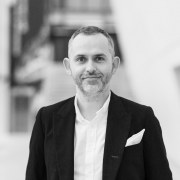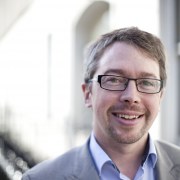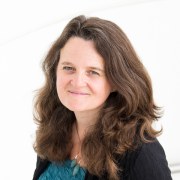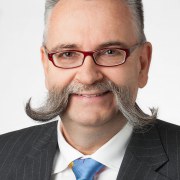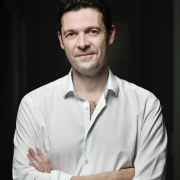How should museums reinvent themselves in the face of a planetary crisis? The world is changing fast under the influence of human behaviour: the climate crisis and biodiversity loss are just some of the manifestations. These changes threaten the security of critical ecosystems and jeopardise the gains made over the past century in human health and well-being. Museums can and must play a role in addressing these issues. What new roles should our institutions play in the age of Fridays for Future and Extinction Rebellion?
In this session, leaders from institutions undergoing major transformations and reinventions will discuss their plans and the changing vision of the role of museums and science centres in the face of a planetary crisis.
Facilitator
Session speakers
Founding Director
Munich
Germany
Michael John will discuss the vision for BIOTOPIA as a major new museum for life sciences and environment currently being developed in Munich and its goals of stimulating curiosity, empathy and agency in relation to the other species with which we share the planet.
Executive Director of Engagement
The Natural History Museum
London
United Kingdom
Clare will discuss how the Natural History Museum in London is redirecting their efforts to create advocates for the planet: citizens who feel sufficiently informed, confident and motivated to make wise decisions, to get involved, and to use their influence to make a positive difference to the global future.
Director General
Museum für Naturkunde Berlin
Berlin
Germany
“The greater your agency, the greater your responsibility”, taking Greta Thunberg by her word, Natural History (and other) museums have to evolve fast to deliver. Agency we have in spades, responsibility needs to be re-defined or even re-discovered, given the fast changing circumstances. The Museum für Naturkunde Berlin is an integrated research museum on its way to becoming open and integrated. Within the next 10 years of development (fueled by an enormous addition funding of € 660 million by parliament) we are planning a science campus for Nature and Society in close collaboration with (inter-)national partners. While we will strengthen existing strength (i.e. our excellent research, accessible collections and relevant meaningful engagement) we are engaging the rich intellectual and cultural Berlin environment. The Museum is already succeeding in exploring new approaches as a convener and pace maker for change, bringing scientific and societal stakeholders (policy, business, civil society) together. We are developing the organization and the future campus to enable scientific and social innovation, addressing three challenges: 1) How to develop and stabilize robust knowledge communities, 2) how to ensure planetary health and 3) how to find solutions for the biodiversity and climate crises.
Museum Director, Professor
Natural History Museum of Denmark, University of Copenhagen
Copenhagen
Denmark
Peter will discuss the vision for the new Natural History Museum of Denmark in Copenhagen to inspire citizens to connect with nature and work for positive change for life on Earth. As a leading research museum, the Natural History Museum of Denmark is part of the University of Copenhagen. Specimens collected over 400 years are showcased at the three current visitor attractions, the Zoological Museum, the Geological Museum, and the Botanical Garden, with more than 1.1 million annual visitors combined. But now a large-scale building project has begun, bringing everything together at the Botanical Garden in central Copenhagen with a total building costs of around EUR 160 million and an opening date in 2023. This is an opportunity to reinvent the national museum for nature in Denmark to be a far more relevant and engaged player in democratising scientific knowledge and fostering genuine science citizenship. However, as Peter will argue, there is no reason to wait until the new building is finished. A series of new initiatives have generated a complete turn-around of this well-established institution and consequently, the Natural History Museum of Denmark is already a new museum, fitting for a 21st century audience.
Curator
Taguig
Philippines
Maria will discuss how The Mind Museum, the first ever science center/museum of its scale in the Philippines, is responding to the crisis.

